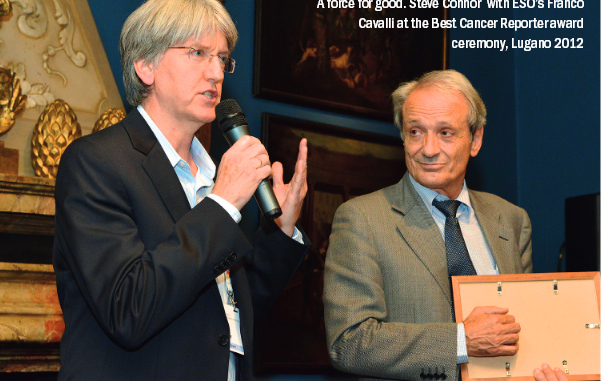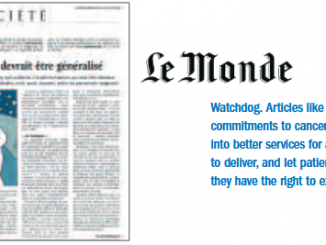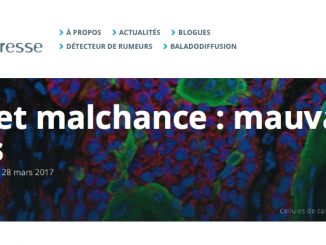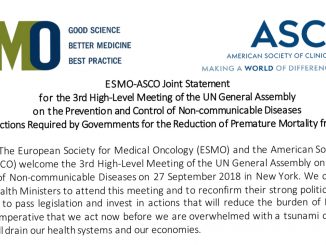
At a time when the British media has been under the spotlight for its for poor ethical standards, The Independent’s Big Tobacco Exposed series shows why good investigative journalism remains so important in opening powerful bodies up to public scrutiny.
The day I spoke to Gerard Hastings, director of the Institute for Social Marketing, at Stirling University, the courts had just thrown out a challenge by the tobacco industry to a ban on tobacco displays in shops and bars instigated by the Scottish Executive. Hastings was pleased at the outcome and not surprised that the tobacco industry had gone to court. “The industry always tries to do this – their aim is not so much to win as to delay. Every week they can delay it happening they can earn more profits.”
The Institute for Social Marketing is a small but prestigious centre whose activities include research into what influences – or inhibits – young people with respect to smoking. It has conducted several longitudinal surveys based on interviews with 11- to 16-year-olds, and has looked in particular at the impact of advertising. Its research has been used by policy makers when they consider ways to prevent a new generation of young people taking up the habit.
The world’s largest tobacco company, Philip Morris International, wanted a close look at the data behind the Institute’s research on young people and tobacco. In 2009 an application was made under the Freedom of Information Act, requiring the Institute to release anonymised but detailed interviews with young people, and other information. The tobacco company did not make this application openly; it asked Clifford Chance, one of the world’s largest corporate law firms, to do so on its behalf.
There are obvious ironies. The Freedom of Information legislation applies to public bodies, but not to commercial organisations, so Philip Morris was using an act from which it is itself exempt to gain access to academic data, and it did so under a cloak of anonymity. If the Institute for Social Marketing had been based in England they might have succeeded, but the Freedom of Information (Scotland) Act of 2002 requires applicants to make requests in their own name. The then Scottish Information Commissioner, Kevin Dunion, insisted that Clifford Chance reveal the name of its client. Nevertheless, staff at the Institute felt overwhelmed. They believed they had a duty of care to the young people not to reveal details of their interviews. This small team found itself working nights and weekends to make their case for withholding the information. Over a two-year period, however, they were not able to convince the information commissioner that their data should be protected.
They believed they had a duty of care to the young people not to reveal details of their interviews
Picking up the story
In August 2011, Steve Connor, science editor of the British daily newspaper The Independent, heard about the application and saw some parallels with stories he had worked on about applications to compel climate change researchers to reveal their data.
Connor recalls: “As with all the best stories, it comes from talking to people. I was talking to someone about something completely different and they mentioned tobacco companies trying to get information from scientists. I write about climate change a lot, and I immediately thought this could be a story. I tracked down the guys at Stirling and they seemed to have an eminently reasonable case about why they should think twice about handing over the material for review.”
In Stirling, this approach by a journalist did not go down well at first. “At the time I felt a little uneasy about it,” says Hastings. “We had been told by our lawyers that this was not exactly sub judice [in which case media coverage could be contempt of court], but it should not be discussed – a wonderful irony given we are talking about freedom of information. It was a source of some discombobulation but ultimately it was good news for us.”
Connor spent a day with the team in Stirling listening to their concerns, and then approached Philip Morris for their side of the story. Based on what he uncovered, The Independent decided that this was an important issue, and broke the story on 1 September 2011 under the headline “Smoked out: tobacco giant’s war on science”. Connor’s story began:
“The world’s largest tobacco company is attempting to gain access to confidential information about British teenagers’ smoking habits.
“Philip Morris International, the makers of Marlboro cigarettes, is seeking to force a British University to reveal full details of its research involving confidential interviews with thousands of children aged between 11 and 16 about their attitudes towards smoking and cigarette packaging.”
Over three days The Independent ran a number of stories under the logo “Big Tobacco Exposed”, which also spotlighted successful applications by tobacco companies to obtain details of meetings between researchers and officials at the Department of Health.
Hastings had to put a holiday on hold to deal with requests for interviews. “I have done a lot of media in my time but this was the biggest. The tabloids and the broadsheet press were very, very agitated by it.
“That Thursday will live with me till the end of my days. I was supposed to be going south with my wife on a trip home and it just didn’t happen because I was talking the whole time. And a lot of it – live radio for example – is not easy to do and is stressful. When the media pick up a story you don’t know where it is going to go. But it played badly in the press for Philip Morris. I did wonder about the PR advice they were getting.”
“It played badly in the press for Philip Morris. I did wonder about the PR advice they were getting”
By December 2011 Philip Morris had let its application lapse, although it has never formally been withdrawn.
It was Hastings himself who nominated Connor for a Best Cancer Reporter award. “I think he knew his business as well as we knew ours. I think the process was successful.” In his nomination, Hastings said: “Cigarette companies spend millions on combating attempts to curb sales and the recruitment of new smokers by targeting those academics involved in understanding the link between smoking addiction and tobacco promotion. [The Independent’s campaign] …was one small victory in the battle with Big Tobacco and its attempts to gag and intimidate the anti-smoking research community.”
Use or abuse of the Act?
But why oppose the application in the first place? Should scientific data not be open to scrutiny? Hastings says they felt this would be a betrayal of the young people whose views they had sought. “In essence we are trying to reverse engineer what the tobacco industry is doing and how their activities impact on children. It is worth bearing in mind that the vast majority of smokers start as children. Without children the industry is out of business in a generation. Every ounce of their effort must be dedicated towards keeping that recruitment going.
“The challenge is that the tobacco industry will deny to their dying breath that their marketing has an impact on children. When we conduct the research, we are asking young people to collaborate with us in a way that is both difficult for them and risky. They are having to confess to behaviours that they wouldn’t want their parents to know about, let alone anyone else.
“In order to do this research, we had to reassure the ethics committee that young people would not be harmed by it and, specifically, that their answers would be treated with confidentiality as well as anonymity. We are in a position of trust with these young people.”
But what about The Independent, which campaigned vigorously for the Freedom of Information Act to be introduced? Connor saw the tobacco company campaign as turning the principle on its head. “The FoI Act is essentially for individuals to speak truth to power, and this was in a way subverting the Act. This was quite clearly a huge multi-million dollar organisation employing very expensive law firms to use this Act. It was rather like Goliath being given a club to beat David with.
“The Act is essentially for individuals to speak truth to power, and this was in a way subverting the Act”
“If the tobacco industry was paying for or commissioning research that involved interviews with underage children about tobacco or smoking habits, there would be uproar because it would be seen as the tobacco industry trying to work out what goes on in a child’s mind that can help them to sell their product. They may argue that they wanted to see the raw data on which this research was based for quality reasons, but at the same time it would have been interesting for them to work out how children respond to tobacco advertising or cigarette packet advertising or whatever. That is why we as a newspaper thought it was a good campaign to launch.
“These interviews with teenagers were conducted expressly under guarantees of confidentiality. They said it would make it harder for them to do research in the future if this data was in the hands of the tobacco industry.”
Maurice Frankel, director of the UK Campaign for Freedom of Information, wrote to The Independent to say that the law was designed to be “applicant blind” – the decision should be about the information not the applicant. “An authority cannot refuse a request because the applicant is opposing its policies, criticising its competence, challenging its decision in court, or in the case of an opposing political party, trying to replace it in government.” But he pointed to a specific exemption in the Scottish Act that allows information collected during a continuing programme of research to be withheld if disclosure would substantially prejudice future reports – subject to a public interest test.
Against the public interest
Steve Connor says that the tobacco companies failed that test. “The truth is that when Philip Morris had to justify what they were doing in front of television cameras it was very difficult for them, and that goes to show that they were on a sticky wicket ethically. They would have pursued this if they thought it was ethically justifiable and they could justify it in front of a wider public. To my mind they could not do it and that is why they dropped it.”
The Scottish Information Commission, which dealt with the Freedom of Information application, was not asked to rule on the public information test; however, it did not uphold objections to revealing the information on the grounds that Philip Morris’s application was “vexatious”. It reported that: “While the Commissioner considered that the request would place a significant burden on the University, he found that that fact alone was not enough to make the request ‘vexatious’. He found that there was a legitimate reason for the request to be made, and there was no evidence that its purpose was to disrupt or annoy the University. The fact that [Philip Morris International] may disagree with the research being carried out was not enough to make the request vexatious.”
He did not have to rule on the next objection – that it placed an unfair financial burden on the University, as by then the application had been dropped.
Strong backing from colleagues on The Independent was a big help says Connor. “It is always difficult to get good stories, and then to convince other people in the office that it is a good story. With this I had no difficulty. I had every encouragement from the editor down. They were pushing me – we will give you more time, go ahead and do this.”
“I had every encouragement, from the editor down. We will give you more time, go ahead and do this”
He admits it is nice to get awards from organisations of repute like the European School of Oncology, but says the buzz is short lived. “It is nice to bask in that reflected glory for a while but you have go into the office the next day and find the next story. Of course, it is nice to know that sometimes doing this job you can do some good as opposed to just reporting on the world at large and being the first version of history. You can maybe be a force for good and I think that this was actually a good outcome.”
Connor does, however, have a concern over the ability of serious newspapers to invest time in digging out stories, as economic pressures to cut staff increase. “This is increasingly expensive when newspaper newsrooms are being cut and we are all being asked to sit at our terminals and churn out stuff. So it is more difficult than 10 or 15 years ago when newsrooms were better staffed. It is loosely called investigative journalism but I think all good journalism has an element of investigation about it. This kind of investigation requires taking a risk, putting in the investment in terms of time and possibly money. In the end it did pay off.”





